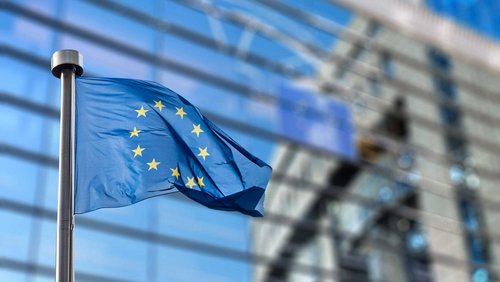The European Union looks back on 60 years of economic cooperation. The first attempts to political integration are even older, but failed in the French parliament. Currently, however, closer cooperation in security and defense policy is urgently needed.

European Union: 60 years Treaty of Rome
On 25 March 1957, the Heads of State and Government of Belgium, Germany, France, Italy, Luxembourg and the Netherlands signed the Treaty on the European Economic Community (EEC) and the Treaty on the European Atomic Energy Community (EAEC). They thus created the basis for the economic integration of the participating states.
The core element of the EEC was the common market, which includes the so-called four freedoms: the freedom of movement for workers and the free movement of goods, services and capital. As early as mid-1968, and a year and a half earlier than foreseen, the Member States had abolished tariffs and restrictions on trade and established a common external tariff. The EEC had thus become a customs union.
Already five years before the Treaty of Rome, on 23 July 1952, the Treaty on the European Coal and Steel Community (ECSC) entered into force. The ECSC had a clear goal: By placing the most important and strategic economic areas at that time under common supervision, a war between Germany and France was to be made impossible.
While economic integration progressed steadily, a major political integration attempt in the French National Assembly in 1954 failed: the European Defense Community (EDC).
Currently, however, it seems to be high time to work together more closely in security and defense policy. Terrorist threats make the world more insecure, and with regards to the US many ask themselves how and possibly if the United States will continue to defend the Western world and its democratic values.
From an economic point of view, a common European security and defense policy would make sense anyway: as a so-called public good, all Europeans would benefit from it. This added value could be financed from a common budget.
The project could be successful even if not all states would be involved. The EU treaty offers the possibility for a group of countries to move forward. The citizens of the European Union are already advocating a common defense and security policy (Figure) by a considerable majority.

Berliner Gespräche Frühjahrstagung: Zwischen Sicherheitspolitik, Green Deal und Wettbewerbsfähigkeit – eine europapolitische Bestandsaufnahme
Das Institut der deutschen Wirtschaft möchte Sie erneut zu einer virtuellen Variante der „Berliner Gespräche” einladen.
IW
Die Zukunft Europas: Welche Prioritäten sind für die Wettbewerbsfähigkeit entscheidend?
Die Europäische Union hat ihre neue strategische Agenda für die Jahre 2024 bis 2029 veröffentlicht. IW-Direktor Michael Hüther und HRI-Präsident Bert Rürup analysieren im Handelsblatt-Podcast „Economic Challenges” die Bedeutung der Wettbewerbsfähigkeit für die ...
IW